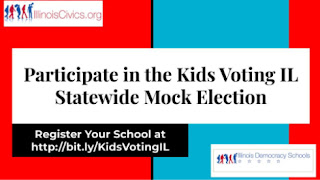Teaching Civics through History: The Great Debates

by Mary Ellen Daneels, Civics Instructional Specialist Next week, the nation will have its first opportunity to see the major candidates for president debate one another and address some of the most essential questions facing our nation regarding COVID-19, protests, health care, and the vacancy on the Supreme Court of the United States. How can we best prepare your youngest community members to wise consumers of this information? The Museum of Broadcast Communications (MBC) created a series of cross-curricular modules that can be used by classrooms in remote learning, hybrid, and face to face environments. The museum’s Executive Director, Susy Schultz , and Carol Summerfield , MBC Board Member and Executive Director of the History Center, joined IllinoisCivics.org this week for a webinar modeling a sample lesson from the museum’s Great Debates resources . If you missed the webinar, you can access a recording to view at your convenience. The Great Debates website provides a...




